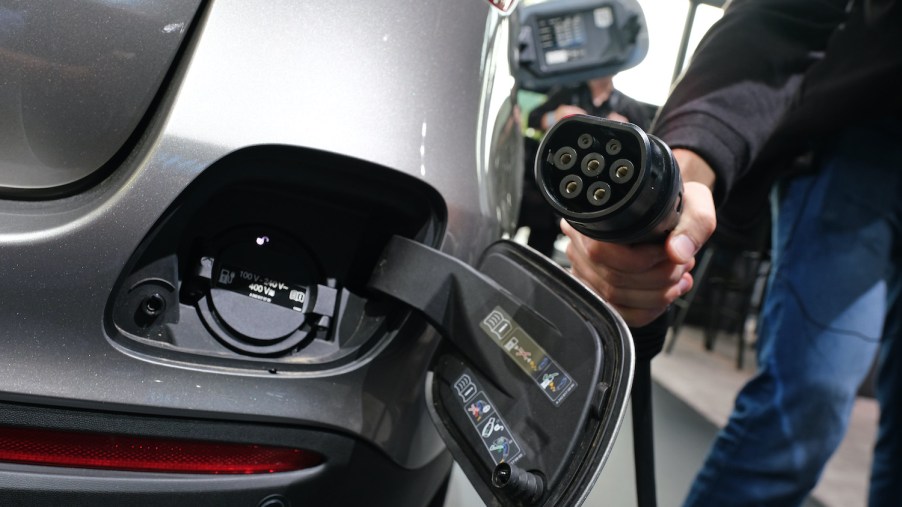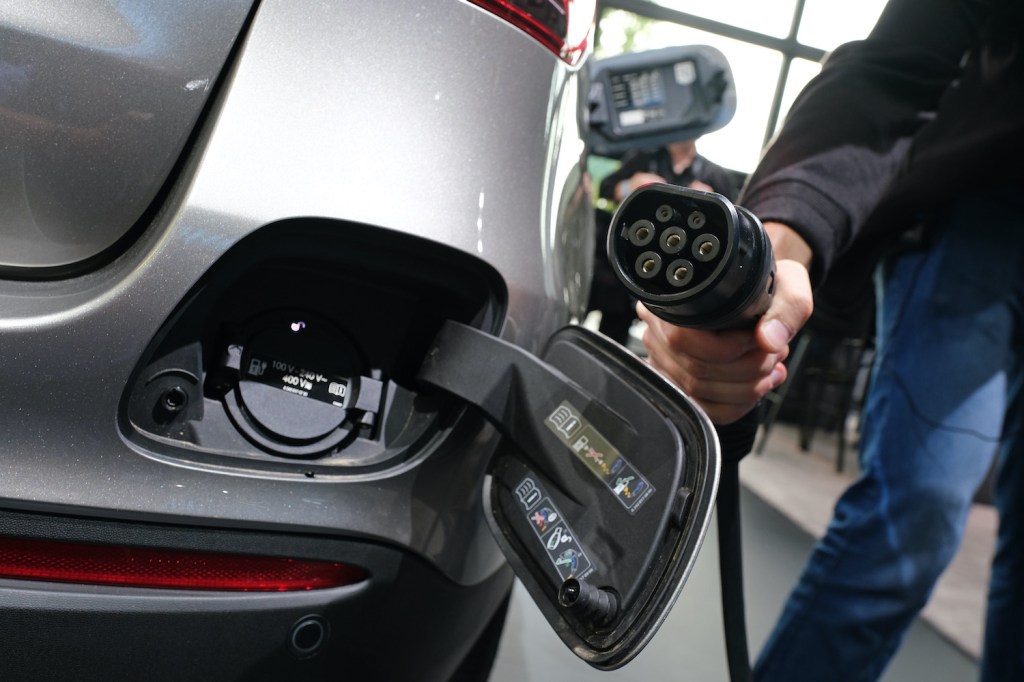
Can You Own an EV Without a Home Charger Setup?
One of the most popular selling points for electric vehicles (EVs) is that they don’t need to be topped off at the gas station. In fact, true EVs don’t need to stop at the gas station at all. Instead, EVs can simply be plugged into a charging station and charged overnight. But what if you don’t have a home charger setup? Does it still make sense to buy and own an EV then?

The answer is yes; you can own an EV without a home charger
What, you don’t have a garage? And you rent rather than own your place? Let’s get real. There is nothing wrong with either of those things, so don’t let them stop you from owning an EV if that’s the kind of vehicle you’ve got your heart set on. While it might be challenging to own an EV without a home charging setup, it can definitely be done.
Ronald Montoya of Edmunds set out to prove that you can own an EV without a home charger too. Montoya tested out the Chevy Bolt, which has an estimated driving range of 238 miles on a full charge, and the Tesla Model 3 Long Range, which can go an EPA-estimated 310 miles. Throughout the experiment, Montoya relied only on public charging stations.
Montoya found that it is entirely possible to own an EV without a home charger. By locating public charging stations throughout the area, Montoya was able to keep both EVs charged and ready. Montoya did share a couple tips for those who plan to buy an EV and forgo a home charging station: keep the battery of your EV topped off and be prepared for varying electricity costs because not all public charging stations are free.
Charging an EV without a home charger setup
If you’re going to buy an EV and do not have access to a home charging station, you’re going to have to find a public charging station near you. Fortunately, there are plenty of them located throughout the country. According to the U.S. Department of Energy, there are nearly 30,000 public charging stations throughout the U.S. Take a look at the linked map, and get an understanding of the public charging stations in your area.
You’re going to want to join a charging network too. Networks like Blink, ChargePoint and EVgo allow you to sign up online. Depending on which network you opt to join, you can either pay to charge your EV ahead of time or link your account to your credit card. Once you’re all setup, you can use the network’s corresponding app to locate the closest public charging stations, find out what type of charging they support, and how much charging your EV at that particular station will cost you.
And if there aren’t enough charging stations nearby? For renters, MYEV recommends asking your landlord if they can install a charging station either in the home or complex’s parking lot or garage, at your assigned parking space, or in a common area that other residents can access. MYEV reports that ChargePoint will even work with landlords and property managers to ensure that home charging stations are installed correctly. You might even consider talking to your employer about installing a charging station through a network like ChargePoint too.
Is an EV the right choice for you?
Owning an EV isn’t like owning a gasoline-powered car. If anything, owning an EV is a lifestyle. If you plan to buy an EV and don’t have a home charger setup, it’s important to do your due diligence beforehand. Have an understanding of where public charging stations are in your area, and how accessible they are to you. Take a look at the different charging networks available, and make a plan. If you’re confident that you can keep an EV fully charged without investing in a home charger set up first, then owning an EV might not be that challenging after all.



